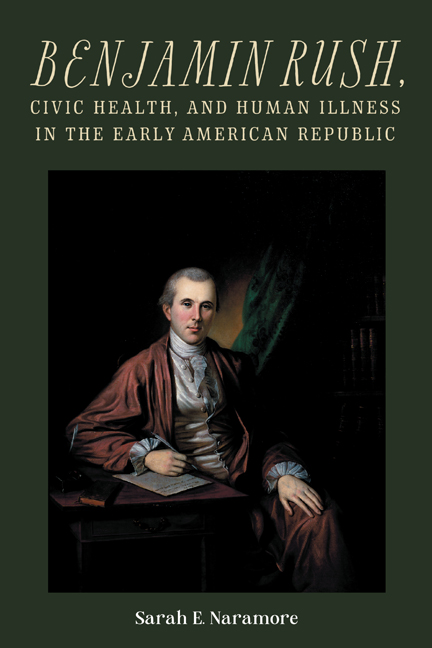Epilogue
Published online by Cambridge University Press: 10 January 2024
Summary
In this frontier of the Republic of Letters, in the ‘ultima Thule’ of Literature your writings have brought with them some of the purest rays of truth that have yet enlightened our horizon. Remote from the authority of Colleges & unawed by any unbounded admiration for old systems, it is not impossible that Kentucky may, before many years, make considerable additions to our stock of Medical knowledge.
Writing from Lexington, Kentucky, on behalf of their newly formed medical society, Dr. Samuel Brown turned his eyes eastward for a moment to congratulate Benjamin Rush on his inclusion to their number as an honorary member. Historians, with their gaze focused on established universities, have remembered Rush as the last of the great system builders of the eighteenth century, but that is only half the story. He may equally be viewed as the beginning and inspiration for American regional medicine in the South and Midwest. The American system may not have turned out exactly how Rush planned, but his inspiration, focus on location, and model of physician behavior lasted well into the nineteenth century.
Like so many things, Brown's address was exaggerated. Lexington in 1799 was a western settlement, but not beyond the known world. Beyond the hyperbole, however, Brown's letter hints at the future of Rush's American medicine and his value to the profession at the dawn of the nineteenth century. The flexibility and independence Rush built into his medical and educational philosophy opened the door for regional variation and adaptation to new regions annexed to the United States. To men like Brown, Rush showed that American medicine could be truly American. He helped Britons in the American colonies see themselves as inhabiting a biologically distinct nation with its own character, institutions, and diseases. Together these parameters shaped a new bodily constitution within a new continent, a concept that remained in flux as the country grew, both demographically and geographically. Rush argued that the country required its own distinctive educational system in order for the profession and the nation to succeed as an equal partner in the world of science. This tension between independence and connection continued to play out within the United States.
- Type
- Chapter
- Information
- Publisher: Boydell & BrewerPrint publication year: 2023



